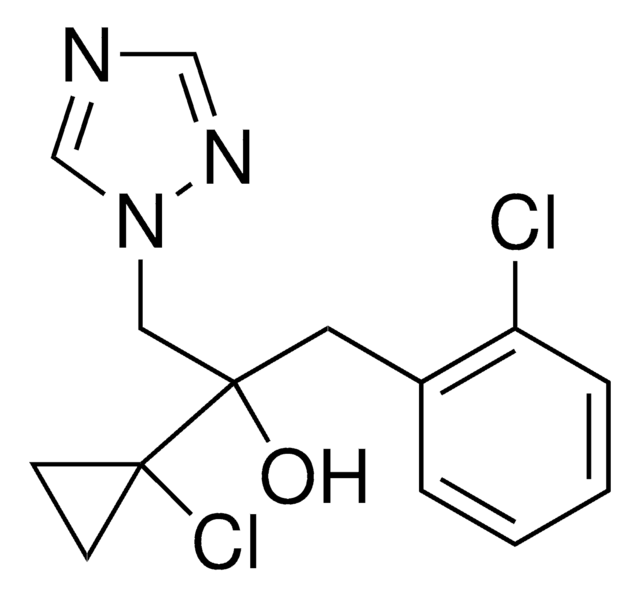31697
Azoxystrobin
PESTANAL®, analytical standard
About This Item
Productos recomendados
grade
analytical standard
Quality Level
product line
PESTANAL®
shelf life
limited shelf life, expiry date on the label
technique(s)
HPLC: suitable
gas chromatography (GC): suitable
application(s)
agriculture
environmental
format
neat
SMILES string
CO\C=C(\C(=O)OC)c1ccccc1Oc2cc(Oc3ccccc3C#N)ncn2
InChI
1S/C22H17N3O5/c1-27-13-17(22(26)28-2)16-8-4-6-10-19(16)30-21-11-20(24-14-25-21)29-18-9-5-3-7-15(18)12-23/h3-11,13-14H,1-2H3/b17-13+
InChI key
WFDXOXNFNRHQEC-GHRIWEEISA-N
¿Está buscando productos similares? Visita Guía de comparación de productos
General description
Application
Legal Information
signalword
Danger
hcodes
Hazard Classifications
Acute Tox. 3 Inhalation - Aquatic Acute 1 - Aquatic Chronic 1
Storage Class
6.1C - Combustible acute toxic Cat.3 / toxic compounds or compounds which causing chronic effects
wgk_germany
WGK 2
flash_point_f
Not applicable
flash_point_c
Not applicable
ppe
dust mask type N95 (US), Eyeshields, Faceshields, Gloves, type P2 (EN 143) respirator cartridges
Elija entre una de las versiones más recientes:
¿Ya tiene este producto?
Encuentre la documentación para los productos que ha comprado recientemente en la Biblioteca de documentos.
Los clientes también vieron
Nuestro equipo de científicos tiene experiencia en todas las áreas de investigación: Ciencias de la vida, Ciencia de los materiales, Síntesis química, Cromatografía, Analítica y muchas otras.
Póngase en contacto con el Servicio técnico


















